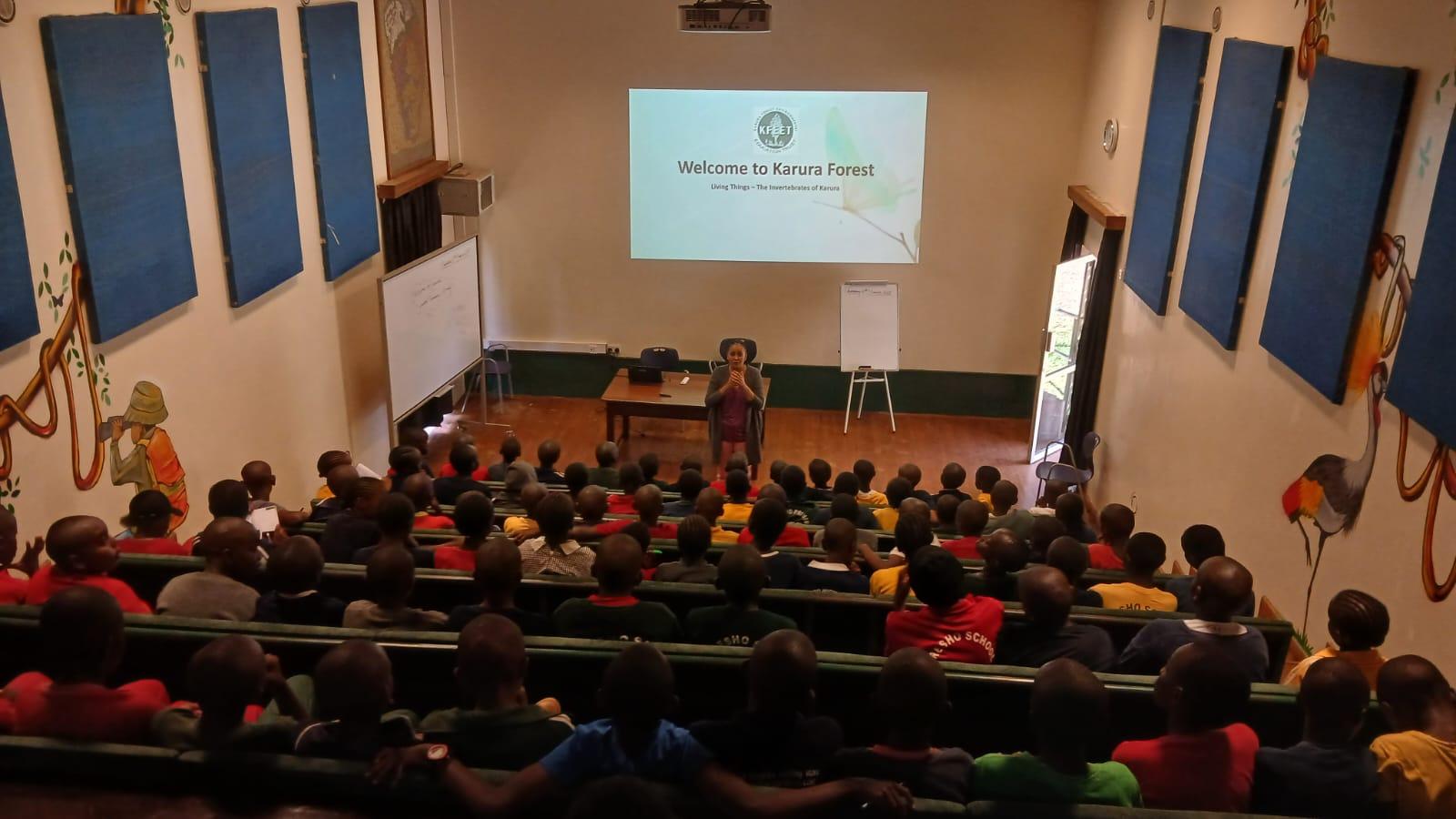 Children at the Karura Forest Environmental Education Trust (KFEET) centre/COURTESY
Children at the Karura Forest Environmental Education Trust (KFEET) centre/COURTESY
The Kenya Karura Forest Environmental Education Trust (KFEET) has has developed a comprehensive environmental conservation awareness programme aimed at inspiring learners to value and protect nature.
Nestled within the iconic Karura Forest, KFEET is offering accessible, curriculum-aligned learning experiences that blend classroom theory with hands-on exploration.
The centre, which targets pre-primary to post-secondary learners, seeks to foster a deeper understanding of forest ecosystems and sustainable living.
According to Julie Kimutai, a manager at KFEET, the facility is open to visitors from all backgrounds who wish to learn about forestry, biodiversity, and sustainable living.
“The key focus for KFEET is fostering conservation and environmental awareness, nurturing appreciation for nature while providing practical, hands-on learning experiences,” she said.
KFEET’s mission is clear to promote environmental education and conservation awareness through curriculum-aligned programmes that inspire learners to become future guardians of nature.
The centre emphasises youth education, community engagement, and sustainable practices, aiming to develop a generation that values Kenya’s forests and ecosystems.
The Trust’s programmes are especially tailored for schools, colleges, and community groups.
Kimutai noted that every year, thousands of students participate in the educational sessions, many aligned with Kenya’s Competency-Based Curriculum (CBC).
“These sessions enhance classroom learning with practical experiences, connecting curriculum objectives to real-world environmental issues,” she explained.
Activities include lecture-style lessons, group projects, forest walks, and outdoor exploration. Notably, KFEET offers these sessions at no cost, ensuring wide accessibility and meaningful engagement with environmental topics.
One of the centre’s flagship initiatives is its Outreach Programme, which supports learners from underprivileged schools.
In partnership with Friends of Karura Forest (FKF), KFEET covers transport, meals, and educational materials for selected public schools, allowing more pupils to experience the forest and understand the importance of conservation.
Private and international schools also regularly visit the center, often requesting customized sessions tailored to their academic needs.
Sustainability remains central to KFEET’s operations.
The centre showcases eco-friendly practices such as rainwater harvesting, water recycling, and wastewater treatment, with treated water used to irrigate paths and greenery.
“These simple, practical solutions reinforce the importance of responsible resource use,” Kimutai emphasized.
To expand its impact, KFEET is continuously updating its learning materials and digital resources, training educators, and building strategic partnerships.
“In today’s world, where environmental crises are increasingly visible, the role of institutions like KFEET is more important than ever,” she said.
“We’re helping young people see forests not just as green spaces, but as vital ecosystems essential for air, water, biodiversity, and climate stability.”
In 2024 alone, the center welcomed 18,026 pupils from schools nationwidE, a significant increase from 16,249 learners in 2023, reflecting growing interest in environmental education.










